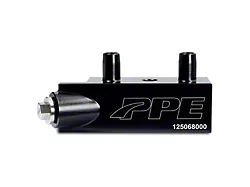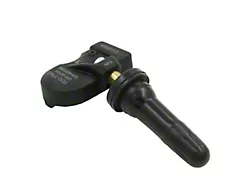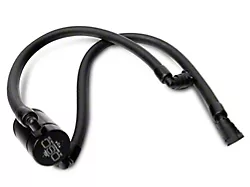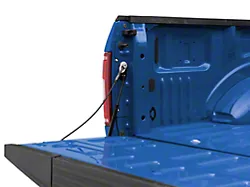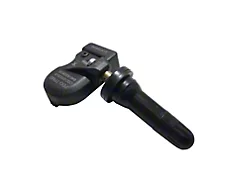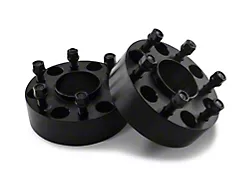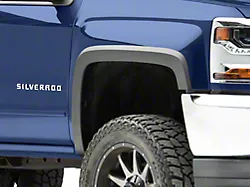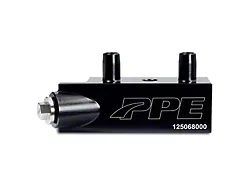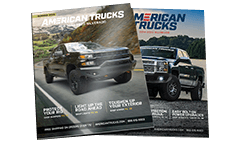
How to Install Borla ATAK Cat-Back Exhaust w/ Black Tips - Split Side Exit on your Silverado
Installation Time
2 hours
Tools Required
- 3/8” Drive Ratchet
- 3/8” Drive Extension 3”
- 15mm Socket
- Pry Bar
- Spray Lubricant
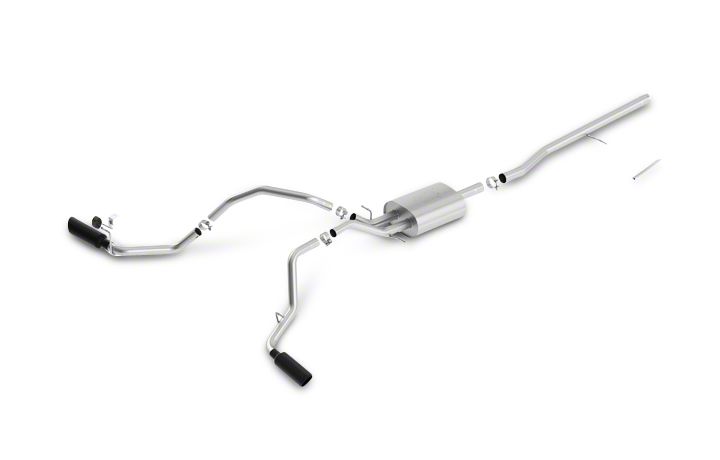
Shop Parts in this Guide

***** Please compare the parts in the box with the bill of materials provided *****
(view the following pages) to assure that you have all the parts necessary for this installation.
These instructions have been written to help you with the installation of your Borla Performance System. Please read this document completely be-fore beginning the installation of your system.
To ensure this part number fits your specific model year, please visit our website for the latest model year listings at www.BORLA.com
Thank you for purchasing a Borla Performance Cat-Back™ Exhaust System.
Borla Performance Cat-Back™ Exhaust Systems (PNs-140544, 140545, 140546, 140547, 140548, 140549) are designed for Chevrolet Silverado & GMC Sierra 1500, 5.3L V8 engine, 2WD and 4WD, automatic transmission.
Borla Performance Industries recommends that an exhaust shop or professional after market parts installer, who has all the neces-sary equipment, tools and experienced personnel needed for proper installation, should perform the installation of this system. However, if you decide to perform the installation, we recommend someone should help you. Ensure the installer uses all under car safety precautions including eye protection.
Please take time to read and understand the following…
By installing your Borla Performance Exhaust System, you indicate that you have read this document and you agree with the terms stated below.
It is the responsibility of the purchaser to follow all installation instruction guidelines and safety procedures supplied with your Borla Performance Exhaust System.
Borla Performance Industries assumes no responsibility for damages occurring from misuse, abuse, improper installation, improp-er operation, lack of responsible care, or all previously stated reasons resulting from incompatibility with other manufacturer’s products and/or systems.
Borla Performance Cat-back™ Bill of Materials

Borla Performance Cat-back™ Bill of Materials

Borla Performance Cat-back™ Bill of Materials

Caution!!! Never work on a hot exhaust system. Serious injury in the form of burns can result If the vehicle has been in use and the exhaust system is hot, allow vehicle to cool for at least 1 hour. Always wear eye protection when working under any vehicle.
Note: It is our recommendation that you use a hoist or hydraulic lift to facilitate the installation of your new Borla Performance Exhaust System.
Taking all under car safety precautions, lift the vehicle using a hoist or hydraulic lift. Once this has been done, you may begin the removal of your old exhaust system from your vehicle.
Note: Before removing the original exhaust system from your vehicle, please compare the parts you have received with the bill of materials provided on the previous page to assure that you have all the parts neces-sary for the installation of your new Borla Performance Exhaust System.
Note: With a used vehicle, we suggest a penetrating spray lubricant to be applied liberally to all exhaust fasteners and allowing a significant period of time for the chemical to lubri-cate the threads before attempting to disassemble.
Original Exhaust System Removal
1. Unbolt clamp located just after the catalytic converter. (See Fig. 1)

2. Place hardware to the side for use during the installation of your new
exhaust system.
3. Lubricate all hangers and rubber isolators.
4. Remove the hangers from the rubber isolators and remove the exhaust. (See Fig. 2)

5. Using a muffler stand or an additional person to hold the exhaust and remove from vehicle. (See Fig. 3)

WARNING: Use extreme caution during installation. Torque all fasteners according to manufactur-er’s torque values and tightening sequence. DO NOT use air impact tools to tighten fasteners on Borla Performance Exhaust Systems. Use of such tools may result in bent flanges or gasket contact areas leading to exhaust leaks.
NOTE: When you first start your vehicle after the installation of your new Borla Performance Exhaust System, there may be some smoke and fumes coming from the system. This is a protective oil based coating used in the manufacturing of mandrel bent performance exhaust tubing. This is not a problem and will disappear within a very short period of time after the exhaust has reached normal operating temperatures.
Borla Performance Cat-Back™ Exhaust System Installation
1. Using the original hardware, place the Front Pipe Assembly into posi-tion using the factory ball clamp. Install the hanger into the rubber iso-lator. (See Fig. 4) Do not tighten the clamp.

2. Place a clamp on the inlet of the Muffler Assembly and insert into the Front Pipe Assembly and insert hangar into rubber isolators. Use a muffler stand or an assistant to hold into position. (See Fig. 5) Do not tighten the clamp.

3. Place clamp over the expanded end of Over Axle Pipe inlet. Insert into Muffler Assembly outlet. Do not tighten the clamp.
4. Place clamp over the expanded end of the R/H Tail Pipe Assembly. Insert into Muffler Assembly outlet and insert hanger into rubber isola-tor. (See Fig. 6)

5. Install Bracket Hanger Assembly to left-side using provided hardware.
(See Fig. 7) Do not tighten the clamp.

6. Install the supplied Heat Shield Reflex Wrap to the brake line over
axle. (See Fig. 8)
7. Check your exhaust system for proper clearance under the vehicle and also for tip alignment. Tighten clamp nut 35 ft. lbs.
8. Before starting your vehicle, make sure to check all wires, hoses, brake lines, body parts and tires for safe clearance from the exhaust system.
9. Start vehicle and check for any leaks. If any leaks are found, determine cause such as loose or incorrectly positioned clamp and repair as neces-sary.

WARNING: Use extreme caution during installation. Torque all fasteners according to manufactur-er’s torque values and tightening sequence. DO NOT use air impact tools to tighten fasteners on Borla Performance Exhaust Systems. Use of such tools may result in bent flanges or gasket contact areas leading to exhaust leaks.
NOTE: When you first start your vehicle after the installation of your new Borla Performance Exhaust System, there may be some smoke and fumes coming from the system. This is a protective oil based coating used in the manufacturing of mandrel bent performance exhaust tubing. This is not a problem and will disappear within a very short period of time after the exhaust has reached normal operating temperatures.
